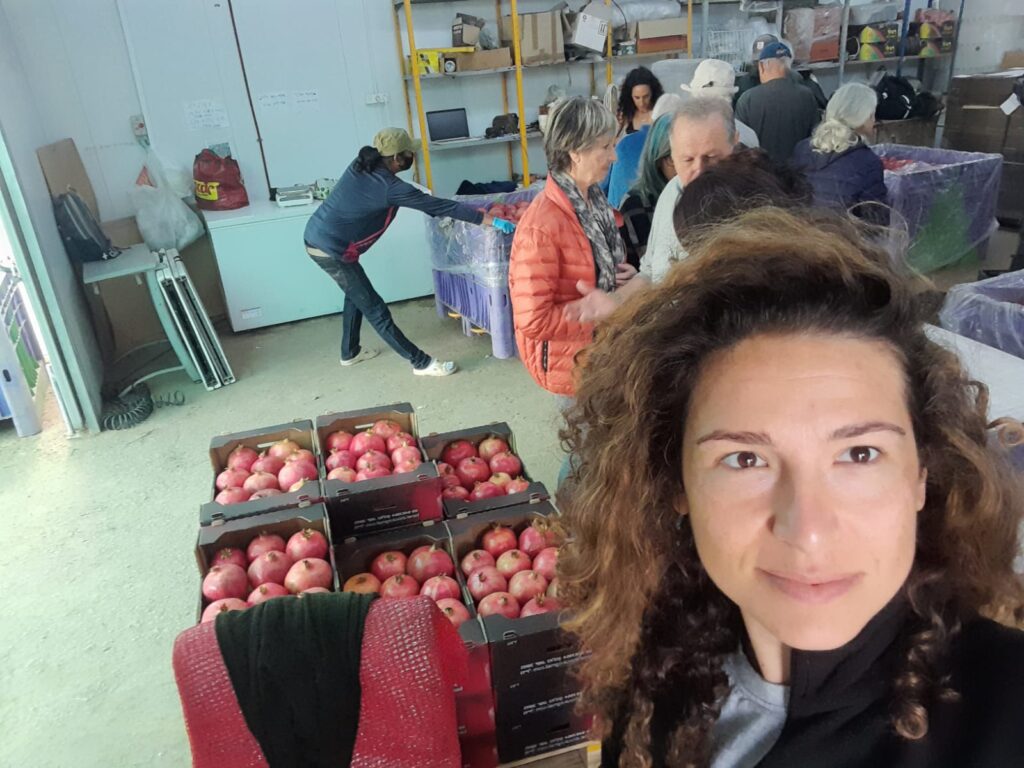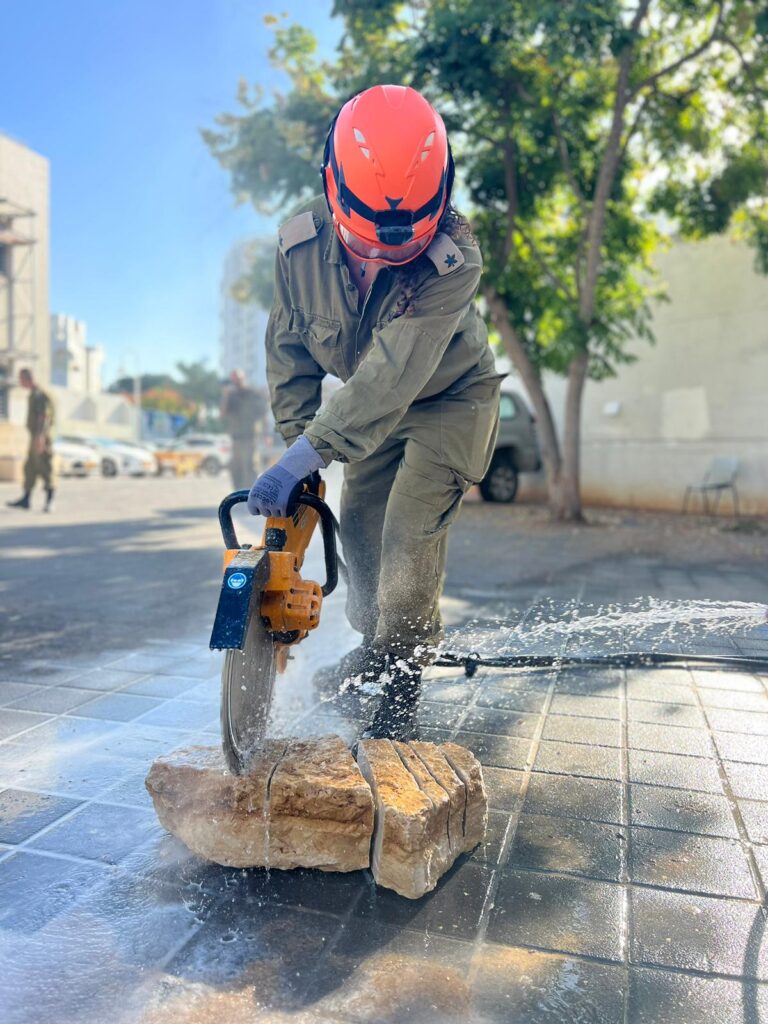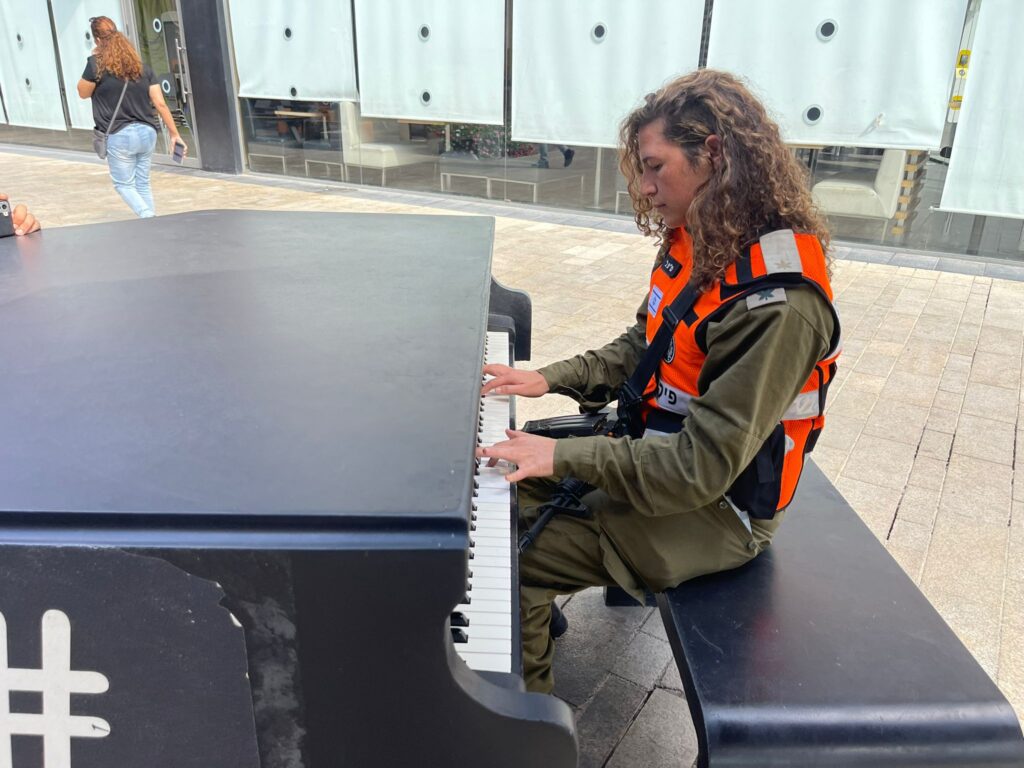As an IDF reserve officer, in her voluntary work and on the rugby field. National team player Perach Ittiel is leading from the front
When Perach Ittiel from the moshav community of She’ar Yeshuv, is not playing rugby, she is is doing….. more or less everything. The war has brought out the full range of here rare and unique range of abilities.
It began with her role as an company commander in the Home Front Command. A position she had only taken on this year. “I was responsible for 50-60 soldiers over six weeks. We were in charge of the city of Ashdod. We had several tasks: to reach impact areas as first responders and deal with damage, To advise on creating secured areas and in general – to show presence. To enhance the sense of security”, she explains. “Then suddenly we were discharged. So after non-stop activity I found myself on the sidelines. So at first I took 8-10 of my soldiers and went to Ein HaBesor to pick lettuce. These things are important. A discharged soldiers can lose focus and feel a lack of meaning.”
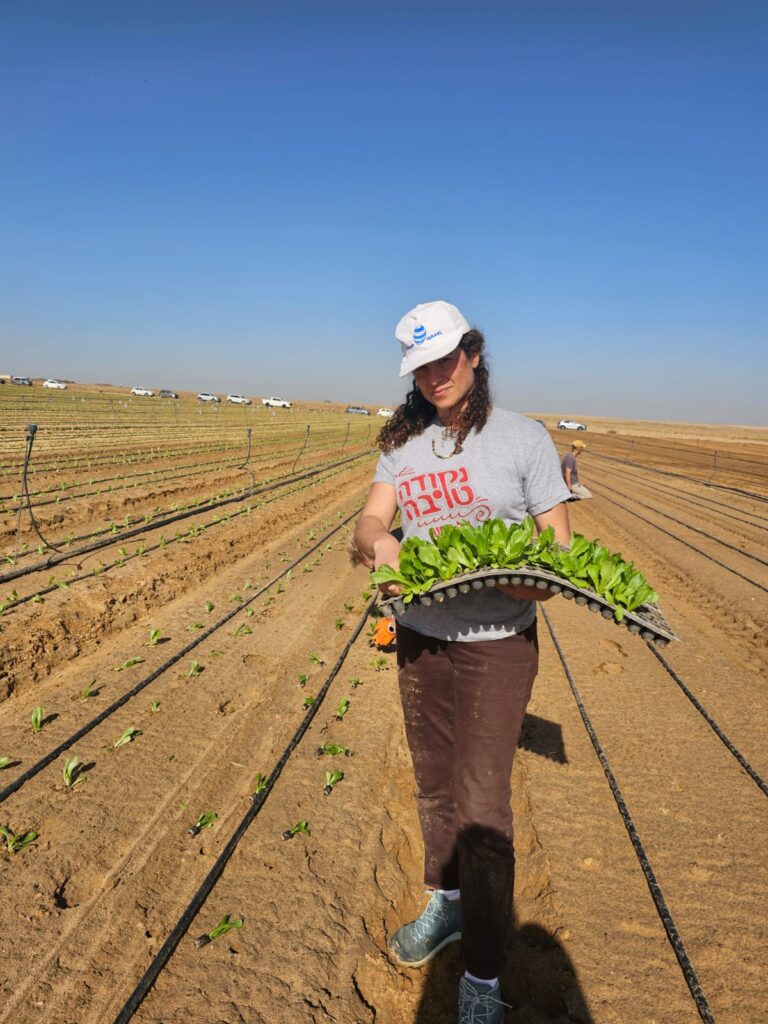
Next, in her professional capacity as a social worker, she treated survivors from the music festivals. This was in a safe space set up for them in Rishpon. Later she went on to Eilat. Working with youth evacuated from the communities in the Gazza surroundings.
The work with festival survivors was challenging: “With many of those who confronted the horrors during a psychedelic experiences we found that life anchors have been shattered. The sense of security in nature disintegrated. One needs to find ways to rebuild these anchors. Yesterday, for example, I held a workshop for such people in the nature near Eilat.” She notes an interesting professional aspect: “some of the substances consumed in these events are actually used in certain modern treatments.”
The disaster at large and the music festivals massacre are very close and real. She has just visited her Galil Elyon teammate Orna Kadman, who lost her brother, Shachar Gil Kadman, who was murdered in the “Psyduck” party. Kadman, from Moshav Yesha, was considered missing for a several days before his death was confirmed.
You had time for rugby through it all?
“Hardly. During my reserve service I took some of my soldiers to run some passing drills. One of them decided to pick up rugby and will join a team in Tel Aviv. But otherwise training was reduced to fitness only”
In the recent season she was part of Galil Elyon’s National Cup victory. Currently, team players are uncertain when training will resume. With the national team, the women achieved 9th place in the Rugby Europe 2nd tier championship series. “It’s important that we can continue to compete despite the war.”, Ittiel says.
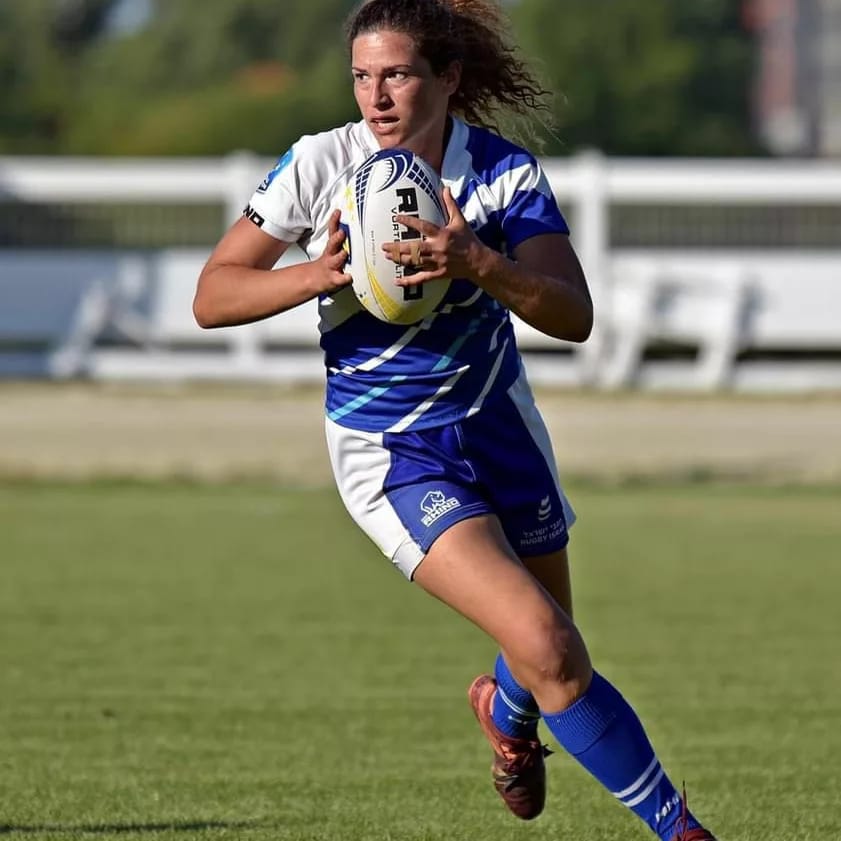
She spent most of last season in Wicklow, Ireland, and Cambridge, England, where she also played full 15-a-side Rugby – something not available in Israel. “15-a-side is still not realistic here. The pool of players is too small. We are only about 100 to 150 women playing”, she explains. She is involved in discussions about ways to significantly increase the number of female rugby players in Israel.
She herself found rugby during her studies in Tel Chai. “At first, a friend recommended it, but it didn’t seem like my thing. I thought it was a masculine sport. But then there was a rugby recruitment day at the college, and the girls seemed cool. So I joined.'”
And rugby has taught her much.
“‘It’s a team sport. A sport with no star, only teamwork. It demands everything from you – strength, fitness, competitiveness. But the most beautiful thing is perhaps the distinction between aggression and violence. Tackling, for example.: you can make a strong tackle on someone and immediately afterward extend a hand. Your opponent will even appreciate you for the tackle. In rugby we remove the female body barrier. They always teach us not to put our bodies in a vulnerable position. In rugby, they tell you everything’s good. We lived in the jungle just a few years ago and fought and survived there. So yes – you can enter a tackling situation. You may get hurt – but all good.'”
(Ronen Dorfan)
